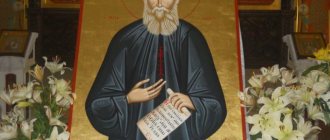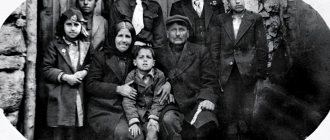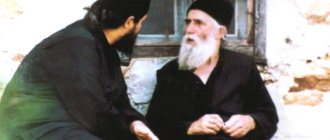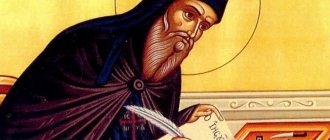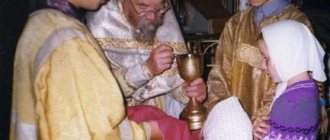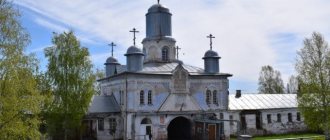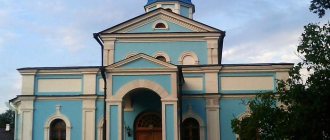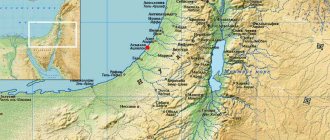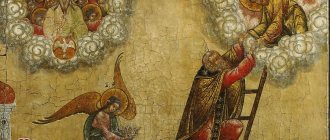Believers need examples of righteous living. This is especially important when the holy person is a contemporary and his deeds can be confirmed by thousands of people. Being a spiritual guide for believers, it is no longer so easy for them to find excuses for their weaknesses when before their eyes there is a righteous person whose life can be a role model. This is the Athonite elder Paisius the Svyatogorets.
He died in 1994 and was canonized in 2015. There are a great many witnesses to his life. He healed a large number of people, he was a kind mentor to many, and he healed even more spiritually, because people saw his spiritual feat in life.
How should one read prayers to Paisius the Holy Mountain?
Before reading prayers to Paisius the Svyatogorets, you need to understand the rules for reading prayers:
- There is no need to tell anyone what you are praying for.
- You can read the prayer to Paisius the Holy Mountain for healing not only for yourself, but also for your loved ones.
- You can pray to the miracle worker at home, the main thing is that you have an icon with his image before your eyes.
- You can turn to the saint with a prayer for the establishment of harmony in the family, for the healing of the mentally ill, oncology and other serious diseases.
- You can turn to a holy warrior to exorcise demons.
- You can seek help for emotional disorders and for calmness and peace of mind.
- You can ask a saint for guidance on the true path.
Venerable Paisius the Great. Icons
On icons, St. Paisius the Great is depicted as a gray-bearded old man. He holds a cross in his right hand and a scroll in his left. In ancient Russian icon paintings, the fingers of the right hand of St. Paisius are folded in a blessing gesture, and in his left hand he holds a scroll.
Venerable Paisius the Great. Fragment of a fresco of the Skete of the Monastery of St. Neophytos of Cyprus. Cyprus, 1183
Venerable Paisius the Great. Romanov-Borisoglebsk. XIX century. TsMiAR meeting
Venerable Paisius the Great. Moscow, second half of the 19th century. Moscow, Central Museum of Ancient Russian Culture and Art named after. Andrey Rublev
Selected saints and the Almighty Savior. Alexandra of Rome, Nicomedia, empress; Saint Basil the Great; Evdokia Iliopolskaya, venerable martyr; Catherine of Alexandria, great martyr; Kirik and Iulita, martyrs; Mary of Egypt, Venerable; Paisius the Great, Rev. Paraskeva Friday; Peter of Murom, prince; Rodion, apostle from 70 and Fevronia of Murom, princess. Moscow, second half of the 19th century. Moscow, Central Museum of Ancient Russian Culture and Art named after. Andrey Rublev
Reverend Paisius. Icon. Russia. XIX century
Venerable Paisius the Great, with his life. Palekh. Mid-19th century Museum named after Andrey Rublev
Prayer for help and support
Although Paisius himself was harsh towards himself: he worked a lot for the good of the Orthodox faith, prayed, wrote books on spiritual topics, but he was merciful towards people and was lenient towards their misdeeds, and did not denounce so much as kindly advised how not to give in sins. He understood how many temptations people have in worldly life and therefore, through his example and teachings, he directed people to seek meaning in spiritual life. In addition, Paisius had the gift of a miracle worker and there was much evidence of the healing of people and their salvation. And after his death, people received the help of the miracle worker in dangerous moments of their lives, and after that they began to turn in prayer to Paisius the Holy Mountain for help and support and grace came to them from him.
Receiving the fire of Divine love, you were all God in a superior feat, and you were the consolation of many people, you punished with divine words, worked miracles with prayers, Paisius the God-Bearer, and now you pray unceasingly for the whole world, reverend.
Patriarchal and Synodal decision on canonization
And the man whom the Lord chooses will be holy.
Number 16:7
Mount Athos, bordering Heaven, is truly the Mountain of God, the Holy Mountain and the destiny of our Most Holy Lady Theotokos and Ever-Virgin Mary. Athos is a field of spiritual struggle, a place of asceticism, repentance and prayer, a workshop of holiness for countless ascetics who labored there for centuries, residents of desert cells and monasteries, monks from every tribe and people, both known by name and those who remained unknown. The Holy Mount Athos, being under the canonical and spiritual jurisdiction, as well as under the constant ecclesiastical care and care of the Holy Christ the Great Mother Church of Constantinople, is its praise and crown. Athos is an inexhaustible source of prayers for the universe, mysteriously flowing from the incessant, day and night prayers and supplications of the Svyatogorsk monks, who pray “for the heavenly world and for the salvation of the souls” of Orthodox Christians located in different parts of the earth, as well as “for the peace of the whole world and about the welfare of the holy Churches of God." A huge number of ascetics who labored lovingly and died on Athos, starting with the first known among them, St. Peter of Athos, with their ascetic sweat and God-loving labors became chosen vessels of the Holy Spirit, were adorned with diverse and wonderful Divine gifts, such as the gift of clairvoyance, the gift of miracles, the gift of discernment of spirits, the gift of unquestioned spiritual guidance, the gift of consolation with words, as well as many others. These spiritually adorned men themselves now decorate the multi-starred sky of our Orthodox calendar, constantly showing us the way to the Kingdom of Heaven.
In accordance with the words of God Himself, Who through the mouth of His man gave the following promise to the high priest Eli and at the same time to all who believe in God’s law: He who glorifies I will glorify
,[1] Our Holy Mother of Christ, the Great Church, from the very beginning of her saving journey in the world, did not cease to recognize as worthy of glorification these divine and holy vessels of the Spirit - rather angels than people - who glorified the Heavenly Father with exploits, words and numerous deeds. So, the Church glorified them and will glorify them until the end of time, as befits saints.
The Holy Apostle Paul in his Epistle to the Romans said: Although sin abounded, grace abounded
.[2] The Holy Church constantly experiences this reality, and our time is no exception.
The Church of Christ constantly canonizes more and more world-famous and little-known venerable ascetics who took up the cross and followed the footsteps of the Crusader Jesus Christ, who by His death on the cross abolished those who had the power of death
,[3] and by His glorious Resurrection gave eternal life to everyone who wills. .
Singing this greatest Divine benefit of the Author of our faith, we exclaim in amazement along with the sacred hymns: Who is the great God like our God?
You are God, working miracles [4] and: “Great art thou, Lord, and marvelous are thy works, and not a single word will be sufficient for the singing of thy wonders.”[5]
Such a glorious continuer of the tradition of holiness and a humble offering to the Holy Church of Constantinople, her character and wisdom, appeared in our last times, shining among the host in the mountains and in the dens and in the abysses of the earth
[6] of the ascetics of Svyatogorsk who labored and died, the God-bearing ascetic and the multi-grace-bearing organ of the All-Holy Trinity, whose earthly origin came from the mother of many saints - Cappadocia and who spent his solitary life in many deeds and tears, the most reverend monk Paisios, in the world Arsenios Eznepidis, adorned by the Lord with supernatural gifts, a pillar of truth, who glorified our Father in Heaven with his wonderful life.
This Cappadocian native, monk Paisios from the Eznepidis family, who for more than half a century followed the ascetic path in poverty and voluntary deprivation, mostly on Mount Athos, was awarded, according to the unmistakable testimony of the conscience of believers, evangelical perfection, a combination of wisdom and virtues. Monk Paisios, having exhausted himself with arduous service and sober vigils in obedience to Christ and in love for God and neighbor, preserving the immaculate Orthodox faith, testified to a good confession, throughout his life showed himself alien to the ruler of the darkness of this age
, [7] added radiance to the glory of the Church and confirmed that
the gates of hell will not prevail against her
.[8] This glorious Paisius, having lived in reverence and righteousness, became a model of living according to Christ, became a living icon of virtue and took upon himself the yoke of God-wise instruction and spiritual guidance of many Orthodox Christians. Having reached a high spiritual level, this man appeared as a vessel of the All-Holy Spirit and was honored by God with the gift of healing the sick and consoling the afflicted.
Now, when the flow of blessings, miracles and healings flowing from the grave of this blessed ascetic becomes greater and greater, the overwhelming faith of a huge number of Orthodox Christians encourages us, who are privileged to personally see and touch the monk Paisius and be connected with him by spiritual ties, by our own testimony Confirming the testimony of the fullness of the church conscience about the holiness of this chosen one of God, according to the due study of the issue and the corresponding report of the Synodal Canonical Commission, in the presence of the Right Reverend Metropolitans and other most honorable persons of our Church, in the Holy Spirit, our beloved brothers and co-celebrants, conciliarly approve and determine in the Holy Spirit to command that from now on and forever on the Holy Named Mountain the monk Paisius, who lived his ascetic life, be numbered among the reverend fathers and saints of the One, Holy, Catholic and Apostolic Church. We determine his annual memory to be honored and sung with hymns of praise on July 12, [9] the day when he peacefully surrendered his spirit to the Righteous Judge and Lord of Life.
As proof and confirmation of this decision, our patriarchal and synodal act has been drawn up, laid down and signed in this sacred code of our Holy Great Church of Christ. An exact copy of this act is sent to the Holy Cinema of Holy Mount Athos, for reading in churches and storage in archives.
In the year of salvation 2015,
month of January, on day 12, index 8.
Patriarch of Constantinople Bartholomew
Eminence Metropolitans: Jacob of Chicago
Swiss Jeremiah
Toronto Sotirios
Cretan Irenaeus
Simiyan Chrysostom
Boston Methodius
Mexican Athenagoras
Gortynsky and Arkadian Macarius
Arkalokhorsky Andrey
Belgian Athenagoras
Paisius of Leros, Kalymnos and Astypalaia
Kydonian Athenagoras
Venerable Paisiy Svyatogorets
(icon painted in the hesychastery of St. John the Theologian in 2014)
Prayer to Saint Paisius the Svyatogorets for help
Although Paisiy Svyatogorets has completed his earthly journey, he still continues to help people. Believers pray in front of his icons, and he heals their physical and mental illnesses. Saint Paisius the Svyatogorets taught that one must pray with feelings of humility and love, and grace and salvation come through these feelings. In this case, the human heart opens to the Highest and through it spiritual grace descends, which accomplishes all virtuous work.
O our reverend and God-bearing father, Paisius the Svyatogorets! You have acquired from God the gift of reasoning, prayer and compassion, to all people who come to you for advice and help. And now, accept from us, unworthy and sinful, the prayers offered to you. Pray to the Lord God to grant us mental and physical health. Heal the sick, comfort the despondent, send help to those in need. Strengthen pastors in the Orthodox faith, grant prayer to monastics. Feed widows and orphans and save all Orthodox Christians from the wiles of the enemy. Guide those who are lost on the true path and bring everyone to God. Grant peace and silence to our fatherland, its authorities and its army. May we please God through your holy prayers in this world and be worthy of Eternal life in Christ Jesus our Lord. To Him belongs all Glory, honor and worship with the Father and the Holy Spirit forever and ever. Amen.
Life of St. Paisius the Great
The first life of Paisius the Great was written by John Kolov (V d. 422/430) and contains, in addition to a description of the life of the ascetic, the first mention of the story of the seven youths of Ephesus.
Paisius the Great was born in the 4th century in Egypt. His parents died early. He was a church cleric, and later took monastic vows in one of the Egyptian monasteries. Paisius's spiritual mentor was Abba Pamva. After the death of his mentor, Paisius went into the desert, where he began to lead an ascetic life in a cave and gathered like-minded people around him. Paisius considered the main monastic virtue to be unconditional submission to the fatherly will of the elders experienced in asceticism, who taught and guided the new monks in difficult ascetic exercises. Paisius taught some of those who loved the monastic life to spend time in prayer and reading the Holy Scriptures, others to engage in crafts, so that along with physical labor they would also exercise virtue, earning food not only for themselves, but also for the poor. When the monastic community was completely comfortable, Paisius, striving for solitude, retired into the desert. According to the life, one day during prayer, Paisius was raised to heaven and saw “beautiful paradise villages, filled with indescribable light and joy, and he also saw the church of the first and eternally triumphant, being honored here to partake of the immaterial food of the Divine Mysteries.” From the life of Paisius there is a known case when one of his disciples, with his blessing, went to Egypt to sell handicrafts and on the way met a Jew who inspired the monk that Christ the Savior is not the Messiah, that another will come. After hesitating, the monk said: “Perhaps what you say is true,” but he did not attach much significance to his words. Returning, he saw with disappointment that Paisius did not seem to notice his presence, and asked about the reason for his anger. He replied: “My disciple was a Christian, but you are not a Christian, the grace of Baptism has departed from you.” Repenting, the monk with tears asked Paisius to forgive him his sin. Only then did the ascetic prayerfully ask the Lord for forgiveness for the monk.
One monk left the desert without permission and settled near the city. There he met a woman who blasphemed Christ. Succumbing to her influence, he not only left monasticism, but also trampled on the Christian faith and gradually came to complete unbelief. One day, by the good providence of God, Nitrian monks passed by his house. Seeing them, the former monk remembered his former life and asked the monks to tell Paisius to pray to the Lord for him. Having heard the request, Paisius began to pray fervently, and his effective prayer was heard. The Lord, appearing to His saint, promised to have mercy on the sinner. Soon the woman who seduced the monk died, and he returned to the desert, where, crying and lamenting over his sins, he began to work in feats of repentance.
Paisius reposed in 417 at a ripe old age and was buried in the monastery he founded in Egypt. Soon after his death, the relics of Paisius were transferred by Isidore of Pelusiot (d. c. 449) to Pisidia (Asia Minor) along with the relics of Paul of Thebes (c. 228 - c. 341).
Prayer for Healing
The holy mentor taught that if they ask the Lord for something, but do not give anything in return, then the request will not be fulfilled. For example, the elder taught that if a person prays for healing, but does not want to get rid of bad habits, then how can he hope for anything? This does not require expensive offerings, but sacrifice of a different kind is required. We must throw our bad qualities and habits on the altar of burning. Turn your gaze to the heavenly world. Look for meaning in spiritual life and then help will come. Text of the prayer for healing to Paisius the Holy Mountain:
Oh, holy, venerable and God-bearing Father Paisius, our beloved patron and God-wise mentor, who ascended along the ladder of virtues from earthly existence to the Kingdom of Heaven and received the grace to intercede for us before the Throne of our All-Merciful Lord; We pray to you: turn us away from the path of our sins and teach us to the Lord to bear the perfect fruits of repentance and renewal of our souls in Christ.
Holy Father, during the days of your earthly life you healed many serious illnesses and incurable illnesses, healing souls from sin and sorrow; Now standing before God, bow His mercy to us, so that for the sake of your intercession He will also heal us, who honor your holy memory with love, and grant us strength in temptation, courage in the fight against the spirit of malice, seeking our eternal destruction, may He grant us forgiveness All our sins, which from our youth to this day I have committed in thought, word and deed, may He teach us what we should do in order to serve Him, as it is fitting to serve our neighbors with love and humility.
To her, Holy Father, instruct us, following the example of your holy life, filled with love and self-sacrifice, rejecting the shackles of sinful life, to cry out to the heavenly palaces, where we will praise our All-Merciful Trinitarian Lord forever and ever. Amen.
Youth and preparation for monastic life
Of course, Arseny’s unusual behavior was not hidden from his peers and classmates at school. However, no one teased him; on the contrary, everyone respected him for his good disposition and willingness to quickly respond to the needs of any person.
Having graduated from primary school with a high score, the future elder did not go further to study, since there was no gymnasium nearby. Arseny decided to master the profession of a carpenter, following the example of our Lord Jesus Christ himself. Working with his master and teacher, the talented young man quickly learned all the intricacies of the craft and became a famous carpenter in his area. He made any wood products, for example:
- iconostases;
- shelves for icons;
- any furniture;
- coffins.
For the latter, he never took payment, thereby showing sympathy for human misfortune. Working as a carpenter allowed Arseny to have everything he needed for life, as well as help those in need.
At the age of fifteen, young Arseny was tempted in faith. His brother’s friend tried to divert the ascetic’s thoughts from faith and prove to him Darwin’s theory of evolution. Then Arseny retired for a long prayer, believing that the Lord would enlighten him in one way or another. And after a long, heartfelt prayer, the young man was privileged to behold Christ himself. The vision was very bright, surrounded by blinding light. Having thus become convinced of the truth of his faith, the future ascetic never wavered again.
After this vision, Arseny began to seriously think about how he could quickly become a monk. The church authorities to whom he turned refused to tonsure him at such a young age, and the young man began painstakingly preparing himself for the future monastic path.
Photos of Paisiya
It is noteworthy that the future saint did not have to persuade and exhort his relatives. Knowing the kind of life their son led, they understood perfectly well that he would not agree to any other path in life other than monasticism.
Important. The future monk was very strict about fasting.
In order not to spoil himself with delicious food, he ate the simplest food, which, in addition, did not add salt. Severe dietary restrictions more than once brought the young man to the point of fainting. In addition, while working in the fields, he often took off his shoes and walked barefoot on the mown stubble. At the same time, the legs became wounded into blood by sharp beveled stems. In this way, Arseny taught himself to endure pain and any restrictions, like the holy martyrs for Christ.
About the lives of other ascetics:
- Life of Epiphanius the Wise
- Life of Saint Anastasia the Pattern Maker
- Life of the Great Martyr Dmitry of Thessalonica
Of course, having such ardent faith, Arseny could not help but try to convey the Truth to the people around him. The young man had a special influence on young people and children. Thus, several of his friends expressed a desire to also go to the monastery, and the future elder supported another one when deciding on the path of the priesthood.
Venerable Paisius of Svyatogorsk
Prayer for relief from torment
In special cases, when a person has died without repentance, one should read a prayer to St. Paisius the Holy Mountain for deliverance from the torment of the deceased. When reading this canon, the soul of the newly deceased receives the help and support of a spiritual mentor and will await the decision of the Supreme Court in calm and humility.
We are inflamed with divine love from youth, O Reverend, who hated all the red in the world, you loved Christ alone. For this reason, they moved into the desert, where they were honored with a Divine visitation, Whom it was inconvenient to see and the eyes of angels, bowed down. The Great Giver, as a Lover of Mankind, speaks to you: do not be dismayed, My beloved, your deeds are pleasing to Me. Behold, I give you a gift: pray for any sinner, his sins will be forgiven. You, in the purity of your heart, were kindled, take the water and touch the Inviolable One, your mind is on His nose. And drinking water, being enriched with the gift of miracles, freeing sinners from torment with your prayer, healing the sick, O Reverend Father Paisius, and driving away demons from people, for I am the first from these sinners. I pray to you that He may pray to you and give me time to repent, and forgive my sin, as He is Good and Lover of Mankind, and I will sing to Him with everyone: Alleluia. (Twice)
Glory to the Father and the Son and the Holy Spirit. And now and ever and unto ages of ages. Amen.
Theotokos. All more than meaning, all Your glorious sacraments, Mother of God, are sealed with purity and preserved by virginity, Mother, of course, is not false, having given birth to the true God, pray to Him for the salvation of our souls.
Old Believer churches in the name of St. Paisius the Great
In the name of St. Paisius the Great, the skete of the Belokrinitsa Metropolis in the city of Piatra Neamt (Romania) and the chapel of the Ancient Orthodox Archdiocese under construction in the village of Success, Astrakhan Region, were consecrated.
Skete in the name of St. Paisius the Great of the Belokrinitsa Metropolis in the city of Piatra Neamt (Romania)
In the name of St. Paisius the Great, a chapel was consecrated in the village of Success, Kamyzyak district, Astrakhan region (Old Orthodox Archdiocese).
Chapel of St. Paisius the Great in the village of Success
